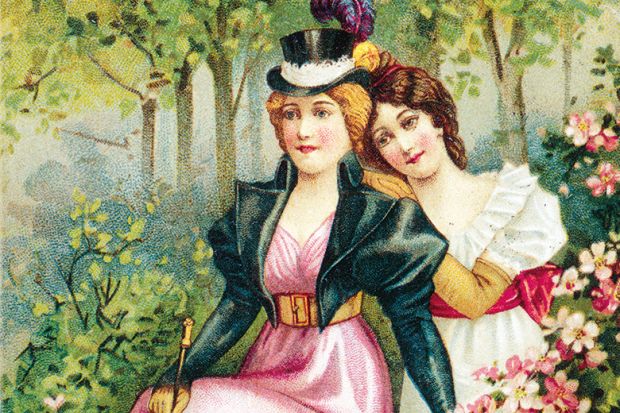“The German professors have catalogued thousands of people whose whole pleasure consists in eating dung,” a character in Aldous Huxley’s novel Antic Hay observed satirically in 1923. “Ah! but some people like blood. And some like boots. And some like gloves and corsets. And some like birchrods. And some like sliding down slopes and can’t look at Michelangelo’s ‘Night’ on the Medici Tombs without dying the little death [having an orgasm], because the statue seems to be sliding.” Although Huxley is not mentioned in The Book of Minor Perverts, he was playing, mischievously, with the subject of Benjamin Kahan’s new book.
The title comes from Michel Foucault’s observation that the emergence of homosexuality as a sexological category in the 19th century (the “sodomite had been a temporary aberration; the homosexual was now a species”) was accompanied by what the famous French philosopher called a constellation of “minor perverts”, a “thousand aberrant sexualities”. But Kahan’s subject is not so much sadism, masochism or fetishism, the main forms of “perversion” named at the same time as homosexuality. Nor, despite its back-cover blurb, does The Book of Minor Perverts tell us a great deal about actual minor perverts: there is precious little on “statue-fondlers”, for instance. Rather, Kahan uses these minor sexualities (although “sexuality” is probably not the right term) to rethink the genesis and history of homosexuality. His argument is that the formation of homosexuality and the homo/hetero divide was by no means as coherent and monolithic as many historians and critics would have it. He is interested in what he terms the “lateness of sexuality”, “the long process of coordination and solidification as sexuality congeals unevenly into the homo/hetero binary”. He skilfully explores what he terms the “definitional incoherence of homosexuality”, demonstrating, for example, that whether homosexuality is congenital or acquired has been a long-standing debate.
It is a mainly a book about homosexuality, then. There are chapters on situational homosexuality, acts without a necessary sense of identity (chapter 1), climatic, humoral, and germ theories of homosexuality (chapter 2), and speculations about the causal relationship between alcohol and homosexuality (chapter 5). But, as the reference to the homo/hetero binary implies, it is also a book about the emergence of sexuality. Kahan’s project is to reinstitute what he calls the “multiplicity of past configurations of sexuality”. Hence, there are chapters on the role of the occult in the formation of sexuality (chapter 3) and on the relationship between industrialisation and sex (chapter 4), and a brilliant afterword that draws innovatively and generously both on the work of others (this author included) and Kahan’s own close readings to attempt a mapping of a new history of sexual formations.
The book is not without its weaknesses. Kahan has criticised “inattention to the literary” in discussions of sexology, so there is a great deal of analysis of sometimes rather obscure literary texts when greater consideration of sexology’s range and an employment of other source material might have made the same argument more effectively. There also seems to be relatively little analysis of heterosexuality – ironic, given that some of the early sexologists used the word to denote a kind of perversion!
Barry Reay is Keith Sinclair professor of history at the University of Auckland and the author, most recently, of Sex in the Archives: Writing the Histories of American Sex (2018).
The Book of Minor Perverts: Sexology, Etiology, and the Emergences of Sexuality
By Benjamin Kahan
University of Chicago Press
240pp, £68.00 and £23.00
ISBN 9780226607818 and 9780226607955
Published 19 February 2019
POSTSCRIPT:
Print headline: The blossoming of new passions
Register to continue
Why register?
- Registration is free and only takes a moment
- Once registered, you can read 3 articles a month
- Sign up for our newsletter
Subscribe
Or subscribe for unlimited access to:
- Unlimited access to news, views, insights & reviews
- Digital editions
- Digital access to THE’s university and college rankings analysis
Already registered or a current subscriber? Login







